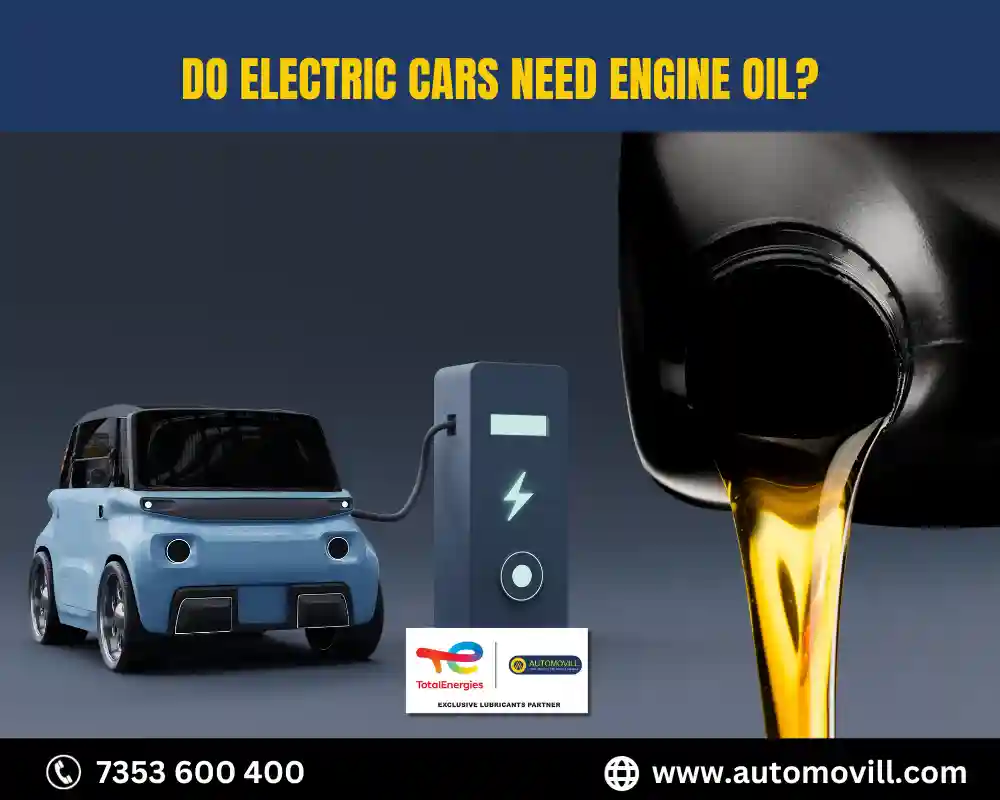
Are you planning to buy an electric car?
If yes, you might be wondering about a particular aspect of electric cars that sets them apart from their gasoline-powered counterparts: Do electric cars use engine oil?
Their quiet, clean, and efficient operation has garnered significant attention, and they’re often hailed as the eco-friendly alternative to traditional gasoline-powered vehicles.
In this blog, we’ll delve into the heart of this electrifying topic and shed light on the distinct mechanics of electric vehicles, including the fluids they do need.
Main Points:
- The Silent Engines: Electric cars use electric motors instead of internal combustion engines.
- No Combustion, No Engine Oil: Electric cars do not require engine oil for lubrication, as their motors operate differently.
- Lubrication and Cooling: Electric motors use sealed bearings and sometimes oil for cooling, but not for the same purpose as engine oil in traditional cars.
- Battery Care: Maintenance in electric cars focuses on the battery, requiring different considerations than engine oil changes.
- Simplicity and Cost Savings: The mechanical simplicity of electric cars often means lower maintenance costs and a smaller environmental footprint.
The Silent Engines
The first point of departure between electric and conventional cars lies in the very definition of their “engines.” Electric vehicles (EVs) replace the traditional internal combustion engine with an electric motor.
These motors are a powerhouse of efficiency, converting electrical energy into mechanical energy with minimal waste. This key distinction sets the stage for the surprising answer to the engine oil question.
No Combustion, No Engine Oil
Unlike gasoline or diesel-powered cars that rely on internal combustion engines, electric cars do not burn any fuel. As a result, there’s no need for engine oil in the traditional sense.
Engine oil is used in conventional cars to lubricate the moving parts, cool the engine, and prevent friction. With an electric motor, these functions are handled differently.
Lubrication and Cooling
In electric cars, lubrication is achieved through different means. Bearings, gears, and other moving components are often sealed in a way that minimizes friction and wear, reducing the need for regular lubrication.
Additionally, some electric motors are oil-cooled, not for lubrication but for heat management. This cooling oil circulates through the motor to maintain an optimal operating temperature.
Battery Care
While electric cars may not require engine oil, they do demand careful maintenance of another critical component: the battery. Batteries are the lifeblood of electric vehicles, and proper care is essential to ensure their longevity and performance.
Regular maintenance checks include monitoring the battery’s state of charge, checking for unusual heat build-up, and ensuring a clean and well-ventilated battery compartment.
Simplicity and Cost Savings
One of the significant advantages of electric cars is their mechanical simplicity. With fewer moving parts and no need for engine oil changes, EVs can often require less maintenance than their internal combustion counterparts.
This translates to cost savings over the life of the vehicle and a reduction in the environmental impact associated with oil changes.
What Fluids Do Electric Cars Need?
While electric cars don’t require engine oil, they do have some unique fluid needs:
- Coolant: Electric cars use coolant for thermal management, ensuring that the electric motor and power electronics stay within the ideal temperature range. This coolant may be a mix of water and antifreeze.
- Transmission Fluid (in some cases): Not all electric cars have transmissions, but those with multi-speed transmissions may require specialized transmission fluid.
- Brake Fluid: Like conventional cars, electric vehicles use brake fluid in their hydraulic brake systems.
- Windshield Washer Fluid: Just as in traditional vehicles, electric cars need windshield washer fluid to keep the windshield clean and maintain visibility.
- Power Steering Fluid: In electric cars with power steering systems, power steering fluid may be needed to assist with steering.
Conclusion
In the realm of electric cars, engine oil is a relic of the past. The clean, efficient, and oil-free electric motors have transformed the way we think about automotive propulsion.
The absence of engine oil is just one facet of the exciting shift towards a more sustainable and eco-conscious future.
As electric vehicles continue to gain traction, it’s essential to stay informed about their unique maintenance needs, including the fluids they require.
While you may not need to worry about engine oil changes, maintaining your EV’s battery and other components is crucial to ensure a smooth and sustainable ride into the future.
